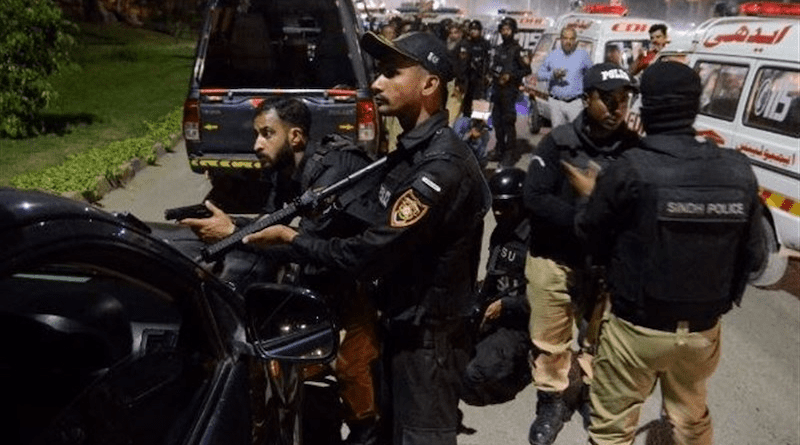Contemporary Security Challenges Confronting Pakistan – OpEd
By Zainab Imran
The geostrategic location of Pakistan turns out to be more problematic than advantageous. A number of security issues that Pakistan, a strategically crucial South Asian country, encounters have a big impact on its stability and development. Both internal and foreign factors, such as terrorism, regional conflicts, socioeconomic inequalities, and political instability, contribute to these difficulties.
The external threat that imperils Pakistan’s security is primarily from its Eastern side i.e. India. The state of India present itself as a traditional threat, which uses military force to inflict fear on enemy states. The belligerent attitude of the Indian Government and military is speaking evidence of its uncooperative behavior towards a peaceful and sustainable resolution with Pakistan. Routine crossfire resulting in a number of civilian fatalities at Pakistan border areas is a blatant violation of the ceasefire agreement. Moreover, recent remarks made by Indian Foreign Minister Subrahmanyam Jaishankar about Pakistan after the SCO meeting was condemnable. An addition, holding the G20 summit in the disputed territory of Indian Occupied Jammu and Kashmir also present Indian as recalcitrant state. Such illicit acts of violation show that the prospects of dialogue between the two states are actually dead now.
Afghanistan is yet another threat that Pakistan combats with from its Eastern border. Recent developments in Afghanistan have shed malign effects on Pakistan. Since the Afghan Taliban assumed power in Kabul, the religiously motivated TTP terrorist group has carried out 22 attacks in the province of Balochistan, resulting in 57 civil and armed fatalities. A few attacks also occurred in the Makran and Gawadar regions purposely to hinder progress of CPEC and other development projects. TTP appears to jeopardise stability and create disturbances in the province instigating Baloch ethnicity.
The internal challenges to Pakistan security can be classified as sectarianism, political violence, and Baloch separatism. The armed struggle between different sectarian groups in Pakistan has resulted in severe consequences. According to reports by the United States Institute of Peace, sectarian violence between Sunni deobandi and Shia Muslims resulted in approximately 2,300 deaths from year 2007 to 2013. However, the National Action Plan 2016 framed under the leadership of Pakistan Civil and Military leadership introduced effective strategies to ameliorate the severity of conflict.
Additionally, cult politics and blind obedience to political leadership has become an originator of political violence in Pakistan, another eminent security challenge to be investigated. The May 9 riots is evidence of the mentioned argument. Security agencies must frame a plan of action to counter such escalated situations.
Meanwhile, increrasing separatist insurgents in Balochistan have become more organised and deadlier. Last year Baloch insurgents launched several attacks, of which the attack on the Confucius Institute at University of Karachi is highlighted till date. The suicide attack was carried out by the first Baloch female suicide bomber, Shari Baloch. Three Chinese teachers and one driver were killed in the tragic incident. Many Chinese teachers fled the country. This incident suggests a serious increase in the capabilities of Baloch militants, which has led to a greater crackdown on the part of Pakistani security forces.
Collaboration amongst a number of parties, including the government, security forces, civil society, and the international community, will be necessary to address these difficulties. Pakistan can solve its security issues and pave the way for a more secure and prosperous future by putting effective ideas into practise, encouraging regional collaboration, and stimulating socioeconomic development.

